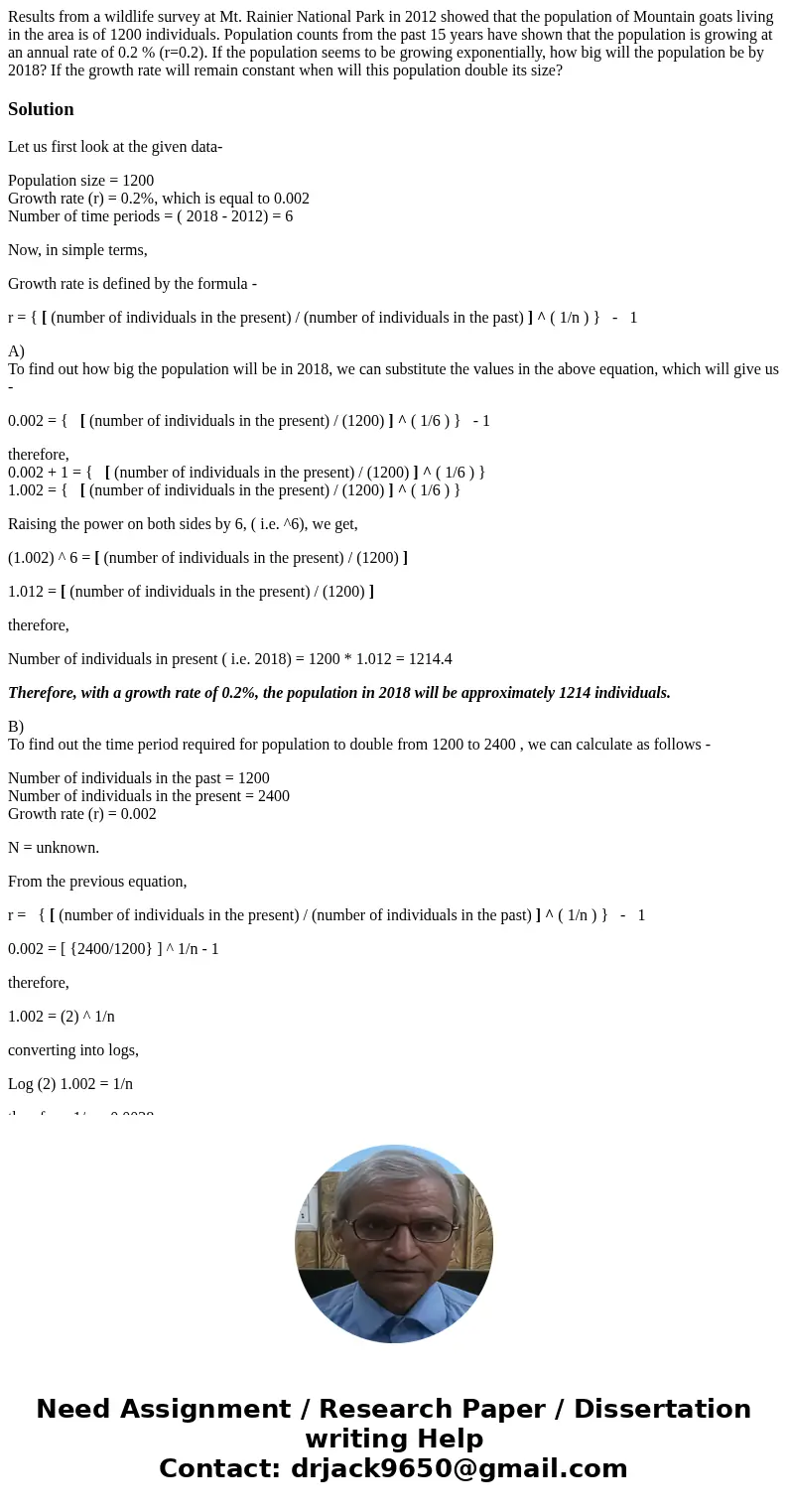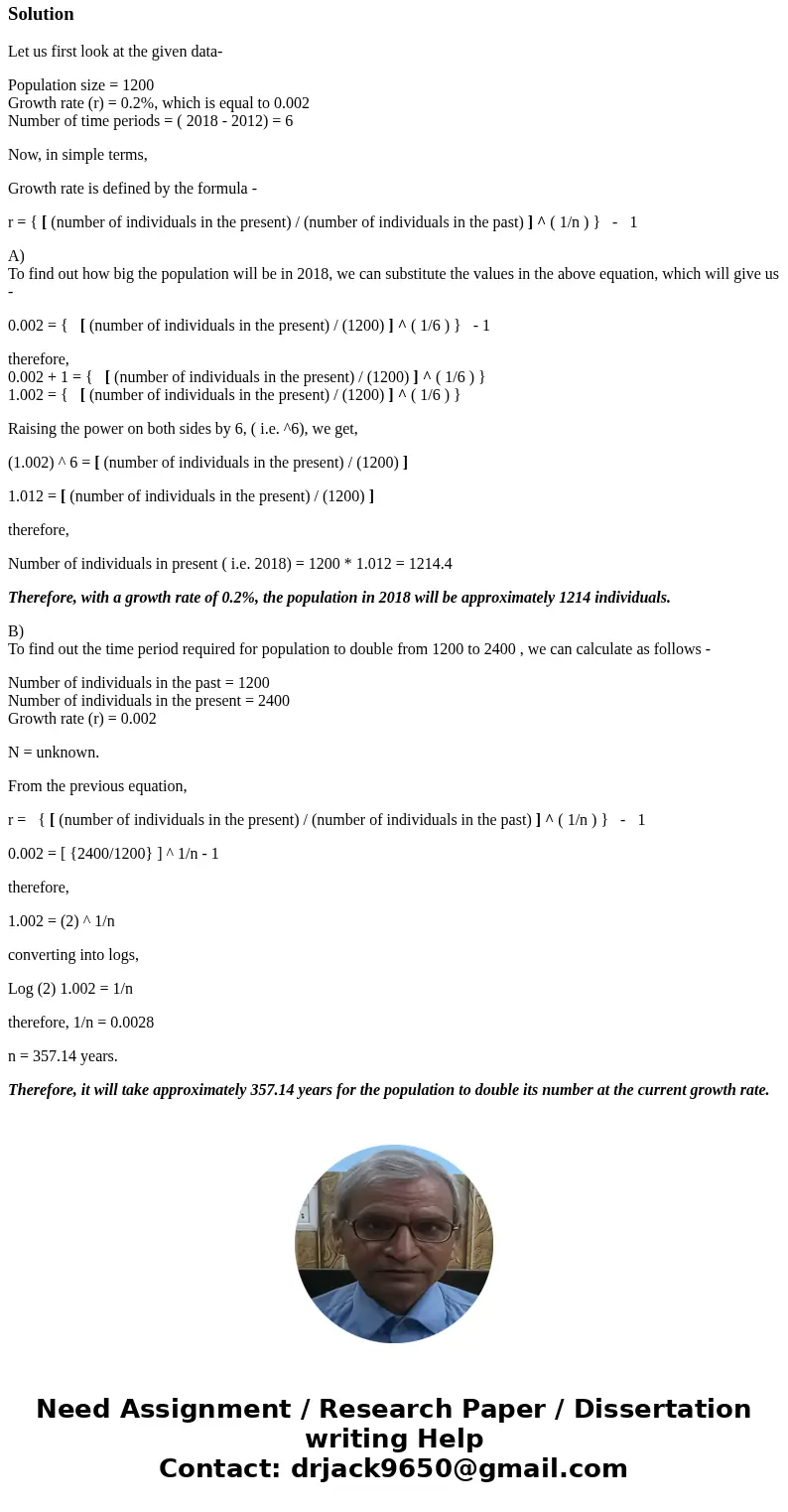Results from a wildlife survey at Mt Rainier National Park i
Results from a wildlife survey at Mt. Rainier National Park in 2012 showed that the population of Mountain goats living in the area is of 1200 individuals. Population counts from the past 15 years have shown that the population is growing at an annual rate of 0.2 % (r=0.2). If the population seems to be growing exponentially, how big will the population be by 2018? If the growth rate will remain constant when will this population double its size?
Solution
Let us first look at the given data-
Population size = 1200
Growth rate (r) = 0.2%, which is equal to 0.002
Number of time periods = ( 2018 - 2012) = 6
Now, in simple terms,
Growth rate is defined by the formula -
r = { [ (number of individuals in the present) / (number of individuals in the past) ] ^ ( 1/n ) } - 1
A)
To find out how big the population will be in 2018, we can substitute the values in the above equation, which will give us -
0.002 = { [ (number of individuals in the present) / (1200) ] ^ ( 1/6 ) } - 1
therefore,
0.002 + 1 = { [ (number of individuals in the present) / (1200) ] ^ ( 1/6 ) }
1.002 = { [ (number of individuals in the present) / (1200) ] ^ ( 1/6 ) }
Raising the power on both sides by 6, ( i.e. ^6), we get,
(1.002) ^ 6 = [ (number of individuals in the present) / (1200) ]
1.012 = [ (number of individuals in the present) / (1200) ]
therefore,
Number of individuals in present ( i.e. 2018) = 1200 * 1.012 = 1214.4
Therefore, with a growth rate of 0.2%, the population in 2018 will be approximately 1214 individuals.
B)
To find out the time period required for population to double from 1200 to 2400 , we can calculate as follows -
Number of individuals in the past = 1200
Number of individuals in the present = 2400
Growth rate (r) = 0.002
N = unknown.
From the previous equation,
r = { [ (number of individuals in the present) / (number of individuals in the past) ] ^ ( 1/n ) } - 1
0.002 = [ {2400/1200} ] ^ 1/n - 1
therefore,
1.002 = (2) ^ 1/n
converting into logs,
Log (2) 1.002 = 1/n
therefore, 1/n = 0.0028
n = 357.14 years.
Therefore, it will take approximately 357.14 years for the population to double its number at the current growth rate.


 Homework Sourse
Homework Sourse